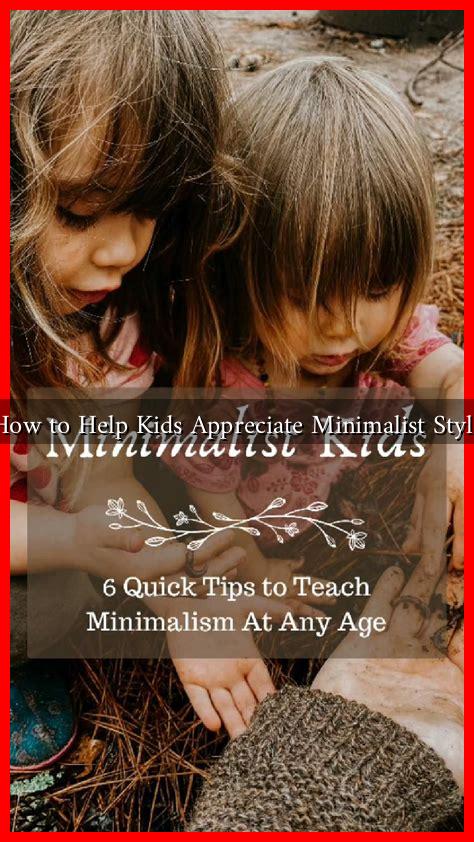-
Table of Contents
How to Help Kids Appreciate Minimalist Style
In a world filled with distractions and excess, teaching children to appreciate minimalist style can foster a sense of clarity, focus, and creativity. Minimalism is not just about having fewer possessions; it’s a lifestyle that encourages simplicity, intentionality, and mindfulness. This article explores effective strategies to help kids embrace minimalist principles, enhancing their living spaces and overall well-being.
Understanding Minimalism
Before introducing kids to minimalist style, it’s essential to explain what minimalism means. At its core, minimalism is about prioritizing quality over quantity and making conscious choices about what we keep in our lives. Here are some key principles of minimalism:
- Simplicity: Focusing on essential items that serve a purpose.
- Intentionality: Making deliberate choices about possessions and activities.
- Mindfulness: Being aware of how clutter affects mental and emotional well-being.
Creating a Minimalist Environment
One of the most effective ways to help kids appreciate minimalist style is by creating a minimalist environment at home. Here are some practical steps:
- Declutter Together: Involve your children in the decluttering process. Teach them to evaluate their belongings and decide what to keep, donate, or discard. This can be a fun activity that encourages decision-making skills.
- Designate Spaces: Create specific areas for toys, books, and art supplies. This helps children understand the importance of organization and reduces visual clutter.
- Choose Quality Over Quantity: When purchasing new items, emphasize quality. For example, instead of buying multiple cheap toys, invest in a few high-quality, durable ones that will last longer.
Incorporating Minimalism into Daily Life
To help kids appreciate minimalist style, it’s important to integrate minimalist principles into their daily routines. Here are some ideas:
- Mindful Consumption: Teach children to think critically about their purchases. Discuss the impact of consumerism on the environment and encourage them to choose sustainable options.
- Limit Screen Time: Encourage kids to engage in activities that promote creativity and mindfulness, such as reading, drawing, or playing outside, rather than spending excessive time on screens.
- Practice Gratitude: Help children develop a sense of gratitude for what they have. Regularly discussing what they appreciate can shift their focus from wanting more to valuing what they already possess.
Engaging Activities to Foster Minimalism
Engaging children in activities that promote minimalist values can make the concept more relatable and enjoyable. Here are some suggestions:
- Art Projects: Encourage kids to create art using limited materials. This can help them understand that creativity doesn’t require an abundance of supplies.
- Storytelling: Share stories or books that highlight minimalist themes. For example, “The Life-Changing Magic of Tidying Up” by Marie Kondo can be adapted for younger audiences.
- Nature Walks: Spend time in nature, emphasizing the beauty of simplicity. Discuss how nature thrives with minimal intervention and how it can inspire a minimalist lifestyle.
Case Studies and Statistics
Research shows that minimalism can have positive effects on mental health. A study published in the Journal of Environmental Psychology found that individuals living in clutter-free environments reported lower levels of stress and anxiety. Additionally, a survey by the American Psychological Association revealed that 61% of parents believe that reducing clutter in their homes would improve their family’s overall well-being.
Conclusion
Helping kids appreciate minimalist style is a valuable endeavor that can lead to a more intentional and fulfilling life. By creating a minimalist environment, incorporating minimalist principles into daily routines, and engaging in meaningful activities, parents can instill a sense of appreciation for simplicity in their children. As they learn to value quality over quantity, children will not only enjoy a more organized space but also develop skills that will benefit them throughout their lives. Embracing minimalism is not just about reducing clutter; it’s about fostering a mindset that prioritizes what truly matters.
For more insights on minimalism and its benefits, consider exploring resources like The Minimalists.

